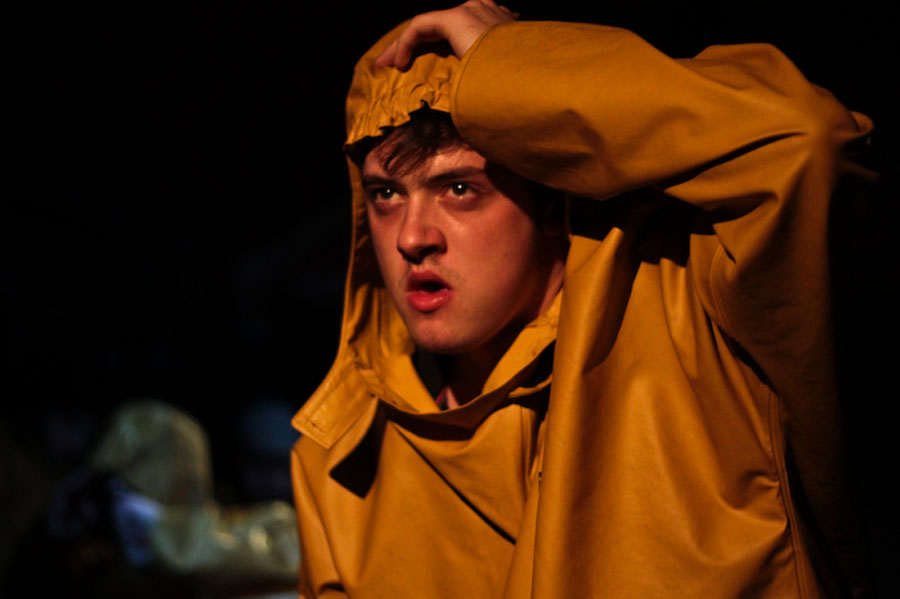Bound / The Tempest
Bound, Southwark Playhouse, and The Tempest, St Giles Cripplegate
reviewed for The Spectator, 17 October 2011

Joe Darke in Bear Trap’s Bound
Sea-storms seem to be buffeting London theatre at the moment, and I’m not just talking about Trevor Nunn’s sugar-saturated Tempest. Down at the Southwark Playhouse, Edinburgh Fringe hit Bound blows into London after a worldwide tour, while at St Giles Cripplegate, in the Barbican complex, you’ll find a darker, sacral The Tempest just back from its premiere in a West Bank refugee camp.
The winner of multiple awards at Edinburgh 2010, including a Fringe First and National Student Drama Awards, Bound reaches into the heart of what men will do in times of economic desperation. It’s also a peek into the life of a traditional fishing community, a frequently overlooked bulwark of our island history.
But while we learn plenty about the salty streets of Brixham, Devon, we never see them or the fishing-widows who populate them: instead, the action takes place in the claustrophobic atmosphere of an oily, creaking fishing trawler as six men are forced into ever more dangerous courses in a desperate attempt to find a catch.
In the outside world, the price of fish only keeps falling, and everyone’s trying to keep ahead of the quotas and changing migrant labour patterns. Inside, tempers flare and century old feuds surface. It’s a heart-stopping piece. An absolute must-see.
Bound is writer-director Jesse Briton’s first play, but most of the time it feels like the work of an adept old hand. It’s as tautly crafted as you’ll find: the opening camaraderie and squabbles lightly building to a fierce climax, the atmosphere punctuated by echoing sea-shanties and mouthy one-liners.
This is a play that takes you by surprise: I’d heard it was emotionally fraught, but after the gentle opening scenes I never expect to find myself adopting the unprofessional, non-critical pose of hugging my legs, rocking back and forward and trying not to hyperventilate in the front row.
There are, though, moments when Briton’s inexperience as a playwright shows. The relationship between the skipper and his closest colleague is played out in soap opera quality revelations, lacking the dexterous banter and gamesmanship that Briton uses to illuminate the relationships below deck.
But the success of Bear Trap’s production isn’t just down to a sharp script: there are milestone performances from Joe Darke as the ship’s young braggart and Tom Bennett as the Polish hired hand, while much stage magic is created using billowing yellow sou’westers, swinging light bulbs and simply physicality. I left determined to see what this young company will do next, and even more keen to find someone who can teach me some traditional Devon sea-shanties.
Pages: 1 2






